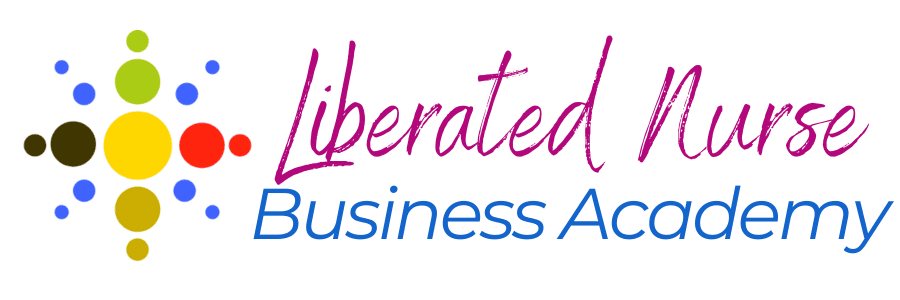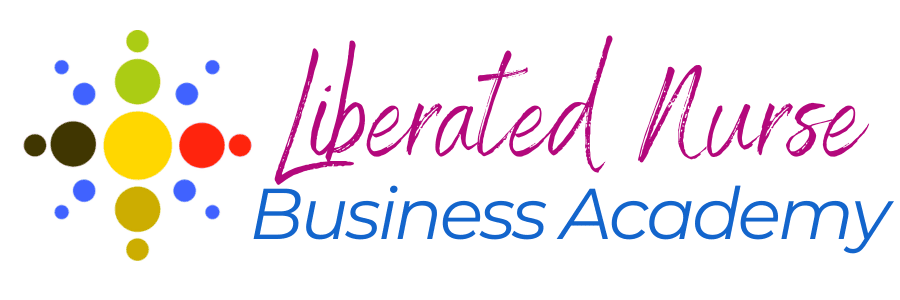
Nurse entrepreneurs face a unique set of challenges as they transition from clinical or educational roles to business ownership. While their healthcare expertise provides a strong foundation, navigating the complexities of entrepreneurship requires a diverse skill set and a resilient mindset. Some of the most significant challenges include:
Lack of Business Knowledge and Skills
Most nurse entrepreneurs have extensive clinical knowledge but often need business education. This knowledge gap can hinder their ability to effectively plan, launch, and manage a successful business. Key areas where nurses may need additional business education include:
- Business planning: Conducting market research to identify unmet needs, developing comprehensive business plans, and setting achievable goals are crucial to establishing a viable business.
- Marketing and customer acquisition: Developing effective marketing strategies to reach target audiences and attract customers is essential for business growth.
- Time management and organization: Nurse entrepreneurs must juggle multiple responsibilities and deadlines, requiring strong time management and organizational skills.
- Financial management: Budgeting, financial forecasting, and understanding tax implications are critical for maintaining financial health and sustainability.
Legal and Regulatory Considerations for Nurses in Business
Navigating healthcare's complex legal and regulatory landscape can be daunting for nurse entrepreneurs. It is crucial to understand and comply with:
- Scope of practice limitations: Nurse entrepreneurs must operate within the scope of practice defined by their nursing license and any additional certifications.
- Licensing and registration requirements: It's critical for nurses to confirm that their business idea is allowed in their state's Nurse Practice Act. Then, depending on the business model and location, nurse entrepreneurs may need to also obtain licenses or registrations for their business.
- Legal requirements for specific business models: Different business models, such as telehealth or consulting, may have unique legal considerations that nurse entrepreneurs must address.
Developing an Entrepreneurial Nurse Mindset
Transitioning from a clinical or educational role to entrepreneurship requires a shift in mindset. Nurse entrepreneurs need to cultivate the following:
- Problem-solving skills and adaptability: The ability to identify and solve problems creatively and adapt to changing circumstances is crucial for navigating the uncertainties of nurse entrepreneurship.
- Self-motivation and persistence: Building a business takes time and effort. Nurse entrepreneurs must be self-motivated and persistent in the face of challenges.
- Niche identification: Identifying niche areas where their nursing skills and expertise can be applied allows nurse entrepreneurs to differentiate themselves in the market.
- Self-confidence: To succeed, nurse entrepreneurs must believe in their abilities and the value of their nursing expertise.
Balancing Multiple Roles
Nurse entrepreneurs often juggle multiple roles, including clinician, business owner, and caregiver. This can lead to:
- Role overload and burnout: The demands of fulfilling multiple roles can be overwhelming, leading to burnout if not managed effectively.
- Work-life balance challenges: Maintaining a healthy work-life balance is crucial for long-term well-being and business success.
- Financial strain: In the early stages of building a business, nurse entrepreneurs may need to maintain other part-time or full-time positions for financial stability, adding to their workload.
Resistance and Skepticism from Family, Nurse Peers, and Others
Nurse entrepreneurs may encounter resistance and skepticism from:
- Peers and healthcare professionals: Some colleagues may view entrepreneurship as a departure from traditional nursing roles, leading to a lack of support or understanding.
- The nursing community: There may be concerns about nurse entrepreneurs' commitment to the nursing profession and patient care.
- The broader healthcare industry: Nurse entrepreneurs may face challenges in gaining acceptance for their non-traditional approach to healthcare delivery.
Accessing Resources and Support for Nurse Entrepreneurs
Building a successful business requires access to resources and support. Nurse entrepreneurs may face challenges in:
- Connecting with other nurse entrepreneurs for mentorship, support, and collaboration[8].
- Finding resources, business coaches, and business education tailored for nurses[8].
- Building professional nurse business owner networks[8]
Ethical Concerns
Nurse entrepreneurs face unique ethical challenges as they navigate the intersection of business and healthcare. Balancing profit motives with equitable access to healthcare is a primary concern. Nurse entrepreneurs’ ethics require them to prioritize the well-being of patients and communities, rather than solely focusing on financial gain. This means considering the affordability of their products or services and working to make them accessible to underserved populations.
A critical ethical consideration is ensuring that their ventures do not harm. Nurse entrepreneurs must uphold the principles of beneficence, non-maleficence, respect for autonomy, and justice in their business practices. This means adhering to professional standards, obtaining informed consent from clients, and avoiding actions that could harm individuals or communities.
Another challenge nurse entrepreneurs must address is overcoming perceptions that entrepreneurship conflicts with nursing values. Some nurses may view entrepreneurship as incompatible with the traditional values of nursing, such as altruism and caring. Nurse entrepreneurs can challenge these perceptions by demonstrating that entrepreneurship can be a powerful tool for advancing nursing practice and improving patient outcomes. By focusing on these areas, nurse entrepreneurs can build the necessary skills and knowledge to transform their healthcare expertise into successful business ventures that address unmet healthcare needs.
Specific Strategies Nurse Entrepreneurs Can Use to Address Ethical Concerns
Transparency and Accountability: Nurse entrepreneurs should be transparent about their business practices and accountable for the impact of their ventures. This includes disclosing potential conflicts of interest and regularly evaluating the ethical implications of their work.
Collaboration and Partnerships: Nurse entrepreneurs can partner with other healthcare professionals, community organizations, and government agencies to ensure their ventures align with the broader goals of improving healthcare access and equity.
Education and Advocacy: Nurse entrepreneurs can educate other nurses and the public about the potential benefits of entrepreneurship in healthcare. This can change perceptions about entrepreneurship and foster a more supportive environment for nurse entrepreneurs.
By addressing these ethical concerns head-on, nurse entrepreneurs can build successful businesses that contribute to a more just and equitable healthcare system.
How Can Nurse Entrepreneurs Develop the Necessary Business Knowledge and Skills to Launch Successful Ventures?
Nurse entrepreneurs can develop essential business knowledge and skills through these avenues:
- Professional Development Continuing Education (CE): Engage in business-focused professional development continuing education (CE) programs, such as those provided by New Directions for Nurses at LiberatedNurse.com
- Workshops and Training Programs: Attend workshops and training programs specifically designed for nurses transitioning into business, such as those provided by New Directions for Nurses at LiberatedNurse.com.
- Mentorship and Networking: Connect with experienced nurse entrepreneurs and business professionals for guidance and support, such as that provided by New Directions for Nurses at LiberatedNurse.com
- Online Resources and Courses: Use online resources, webinars, and courses on business planning, marketing, finance, and legal aspects.
- Self-Learning: Read books, articles, and industry publications to stay updated on business trends and best practices.
- Professional Organizations: Join organizations that offer resources and networking opportunities for nurse entrepreneurs.
By actively seeking out these opportunities, nurse entrepreneurs can gain the knowledge and skills needed to navigate the complexities of business ownership and increase their chances of success.
Summary
This article explores the multifaceted challenges that nurse entrepreneurs confront as they transition from clinical roles to business ownership. Key obstacles include a scarcity of formal business education, navigating intricate legal and regulatory frameworks, cultivating an entrepreneurial mindset, managing multiple responsibilities, and overcoming resistance and skepticism from peers, the healthcare industry, and regulatory bodies.
Ethical considerations, such as balancing profit motives with equitable access to healthcare, are also discussed. The article underscores the importance of nurses acquiring business acumen, seeking mentors, and building professional networks to surmount these hurdles and establish successful ventures. Moreover, it highlights the need for nurse entrepreneurs to proactively address ethical considerations, ensuring transparency, accountability, and collaboration in their business practices. By doing so, they can contribute to a more just and equitable healthcare system while leveraging their expertise to address unmet healthcare needs.
For business-focused professional development coaching, mentoring, workshops, and continuing education (CE) programs, see those provided by New Directions for Nurses at LiberatedNurse.com
Citations
[1] https://www.medicaleducation-bulletin.ir/article_180246_378953fd640b692caa878e52b5b14ccf.pdf
[3] https://nursepreneurs.com/developing-7-business-skills-all-nurse-entrepreneurs-should-possess
[5] https://www.ncbi.nlm.nih.gov/pmc/articles/PMC10669135
[6] https://nursing.maryville.edu/blog/what-is-a-nurse-entrepreneur.html
[7] https://nursejournal.org/articles/meet-a-nurse-entrepreneur


